Can Low Oil Cause Reduced Engine Power? Answered
Understanding the relationship between low oil levels and engine power is critical for maintaining your vehicle’s health. So, the question arises Can Low Oil Cause Reduced Engine Power? It can. A well-lubricated engine ensures smooth operation, whereas low oil levels can lead to a host of problems, including reduced engine power. This article delves into the intricacies of how low oil levels affect engine performance, ensuring you are well-equipped to maintain your vehicle effectively.
Key Takeaways
- Low oil levels can indeed lead to reduced engine power.
- Proper oil levels are essential for lubrication, cooling, and overall engine health.
- Recognizing the signs of low oil can prevent significant engine damage.
- Regular maintenance is crucial for optimal engine performance.
Can Low Oil Cause Reduced Engine Power?
Yes, low oil can cause reduced engine power. The engine relies on oil for lubrication, cooling, and cleaning. When oil levels drop, friction increases, leading to overheating and inefficient engine operation. This can manifest as a noticeable reduction in engine power, acceleration, and overall vehicle performance.
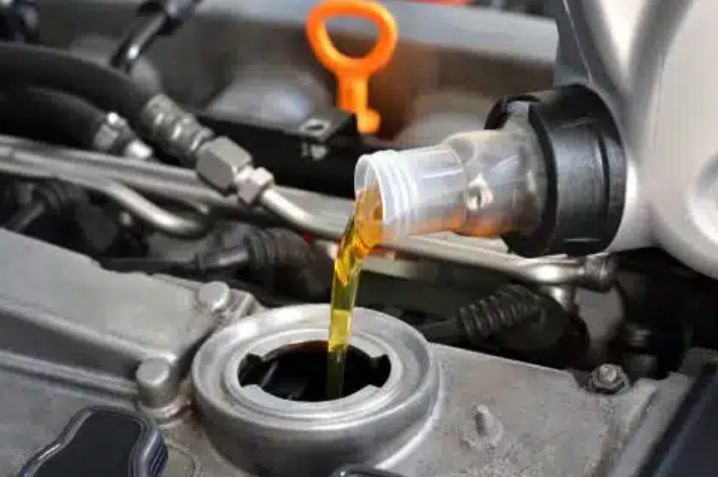
The Role of Engine Oil
- Lubrication: Oil minimizes friction between moving parts, ensuring smooth operation.
- Cooling: It dissipates heat, preventing overheating.
- Cleaning: Oil helps in removing debris and buildup inside the engine.
Impact of Low Oil Levels
- Increased Friction: Without adequate lubrication, parts wear down faster.
- Overheating: Low oil levels mean less cooling, risking engine overheating.
- Poor Performance: Reduced lubrication and cooling lead to inefficient engine operation.
Recognizing Low Oil Symptoms
It’s essential to recognize the signs of low oil to prevent engine damage. Common indicators include:
Warning Lights and Gauges
- Oil Pressure Light: This light indicates low oil pressure, a direct consequence of low oil levels.
- Engine Temperature Gauge: High readings can suggest low oil levels affecting the cooling system.
Physical Symptoms
- Engine Noise: Increased engine noise, such as knocking or ticking, can indicate low oil.
- Smoke from Exhaust: Blue or gray smoke may signal oil burning in the combustion chamber.
Performance Issues
- Reduced Acceleration: Low oil can cause sluggish engine response.
- Unusual Engine Behavior: Stalling or rough idling can also be symptoms of low oil levels.
Importance of Regular Oil Checks
Regularly checking your oil level is crucial for engine health.

How to Check Oil Levels?
- Dipstick Method: Regularly use the dipstick to monitor oil level and quality.
- Visual Inspection: Look for leaks or oil spots under your vehicle.
Frequency of Oil Checks
- Manufacturer’s Guidelines: Follow the recommended schedule for oil checks and changes.
- Driving Conditions: More frequent checks may be necessary in harsh driving conditions.
Consequences of Neglecting Oil Levels
Ignoring low oil levels can lead to severe engine damage.
Short-Term Effects
- Reduced Efficiency: The engine works harder, reducing fuel economy.
- Increased Wear: Components wear out faster without proper lubrication.
Long-Term Damage
- Engine Seizure: Prolonged low oil can cause the engine to seize, requiring expensive repairs or replacement.
- Permanent Damage: Continued neglect can lead to irreversible engine damage.
Preventative Maintenance Tips
Preventative maintenance is key to avoiding reduced engine power due to low oil.
Regular Oil Changes
- Schedule Adherence: Stick to your vehicle’s oil change schedule.
- Quality Oil: Use the recommended oil type for your engine.
Monitoring and Response
- Regular Checks: Frequently check oil levels and quality.
- Prompt Action: Address low oil levels immediately to prevent damage.
Will An Oil Change Fix Reduced Engine Power?
An oil change can potentially fix reduced engine power if the issue is directly related to old or insufficient oil. Old oil can lose its viscosity and ability to lubricate the engine effectively, leading to increased friction and reduced efficiency.
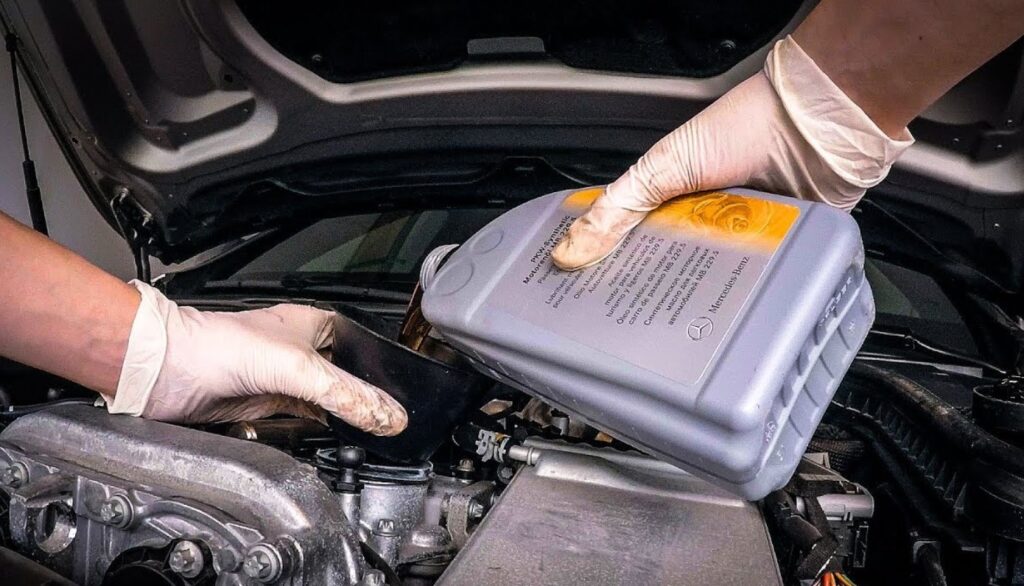
By changing the oil, you restore the proper lubrication and cooling necessary for optimal engine performance. However, if reduced engine power is due to other underlying mechanical issues, an oil change alone may not resolve the problem. It’s always best to diagnose the exact cause of reduced engine power with a professional mechanic.
Can Low Oil Cause Loss Of Power?
Yes, low oil can cause loss of power in a vehicle. The engine relies on oil for lubrication, cooling, and cleaning. Low oil levels result in increased friction between moving parts, leading to higher temperatures and reduced efficiency.
This can manifest as sluggish performance, slower acceleration, and a general decrease in power. In severe cases, it can lead to engine damage and complete power loss. Regular oil checks and timely changes are crucial to prevent these issues.
What Triggers Reduced Engine Power?
Reduced engine power can be triggered by several factors:
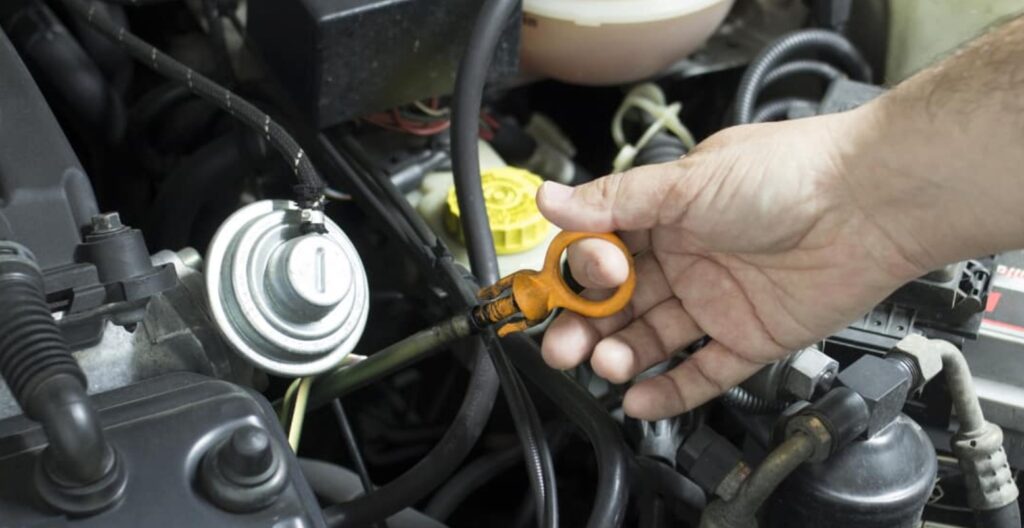
- Low Oil or Bad Oil: Inadequate lubrication from low or old oil can cause increased engine friction, reducing power.
- Air Flow Issues: Problems with the air intake or clogged air filters can restrict the engine’s oxygen supply, impacting performance.
- Fuel System Problems: Issues like a clogged fuel injector or failing fuel pump can lead to inadequate fuel supply to the engine.
- Exhaust Blockages: Obstructions in the exhaust system can impede engine efficiency.
- Sensor Failures: Modern cars rely on sensors to regulate performance. Faulty sensors can misinform the engine control unit, leading to reduced power.
- Overheating: An overheating engine will often reduce its power output to prevent damage.
Understanding the specific cause is essential for the correct remedy, and often requires professional diagnosis.
How Does A Car Act When Low On Oil?
When a car is low on oil, several symptoms may manifest, indicating a problem:
- Illuminated Warning Lights: The oil pressure light or check engine light may illuminate on the dashboard.
- Engine Noise: Knocking, rumbling, or ticking noises from the engine are common signs of low oil.
- Overheating: The engine may run hotter than usual, as oil plays a critical role in cooling.
- Poor Performance: The car might exhibit sluggish acceleration, stuttering, or stalling.
- Smoke from Exhaust: Blue or white smoke from the exhaust could indicate oil burning in the combustion chamber.
These signs indicate a need for immediate attention to prevent potential severe engine damage.
Conclusion
In conclusion, low oil levels can significantly impact engine power and overall vehicle performance. Regular checks and maintenance are vital to prevent the negative effects of low oil on your engine.
By understanding the critical role oil plays in your engine’s health, you can ensure a smoother, more efficient, and longer-lasting vehicle performance. Remember, a well-maintained engine is the key to a reliable and high-performing vehicle.
People Also Ask
What should I do if I notice my car has low oil?
If you notice low oil, you should top it up to the correct level as soon as possible. If the oil is dirty or if it’s been a long time since the last oil change, it’s advisable to get an oil change. Regular monitoring and maintenance are crucial to prevent any long-term damage to the engine.
Can regular oil changes prevent reduced engine power?
Regular oil changes can significantly help in preventing reduced engine power. Fresh oil ensures proper lubrication and cooling of the engine components, leading to optimal performance.
How often should I check my car’s oil level?
It’s recommended to check your car’s oil level at least once a month and before any long trip. More frequent checks are advisable if you notice any signs of low oil or if your vehicle is older and consumes oil more quickly.
Does the type of oil affect engine performance?
Absolutely. Using the correct type and viscosity of oil as recommended by the manufacturer is crucial for optimal engine performance. Incorrect or low-quality oil can lead to poor lubrication and increased engine wear.
Can low oil cause a check engine light to come on?
Yes, low oil can trigger the check engine light. This light can indicate a variety of issues, including low oil pressure, which is critical for the engine’s proper functioning.

Welcome to the exhilarating world of Matt Rex, a professional car racer turned renowned vehicle enthusiast. Immerse yourself in his captivating blog as he shares heart-pounding adventures, expert reviews, and valuable insights on cars, trucks, jets, and more. Fuel your passion for speed and discover the beauty of vehicles through Matt’s engaging stories and meticulous expertise. Join the ever-growing community of enthusiasts who find inspiration and expert advice in Matt Rex’s blog—a digital hub where the thrill of speed meets the pursuit of knowledge.





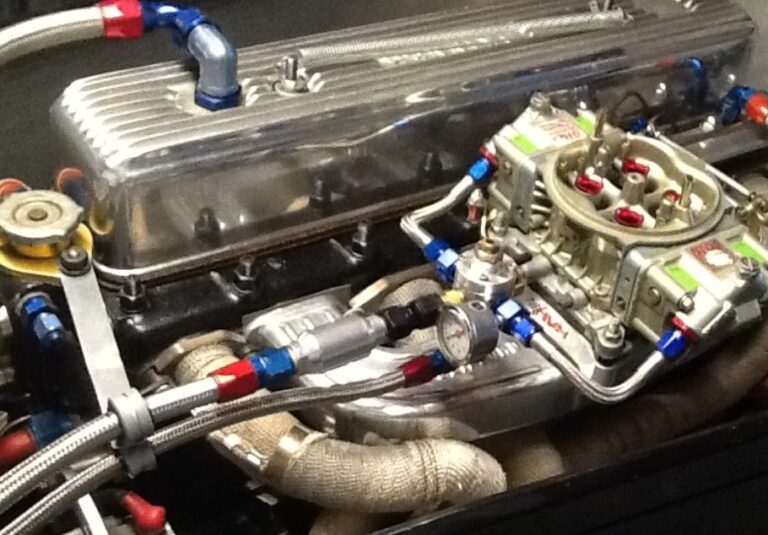
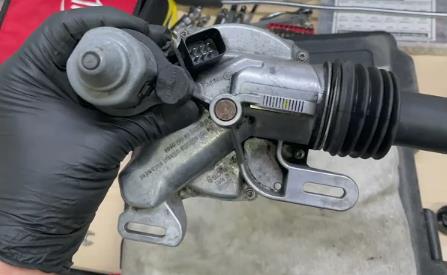
![Is Jet Skiing Safe For Non-Swimmers? [Answered]](https://www.turbochaos.com/wp-content/uploads/2023/08/Is-Jet-Skiing-Safe-For-Non-Swimmers-768x512.jpg)